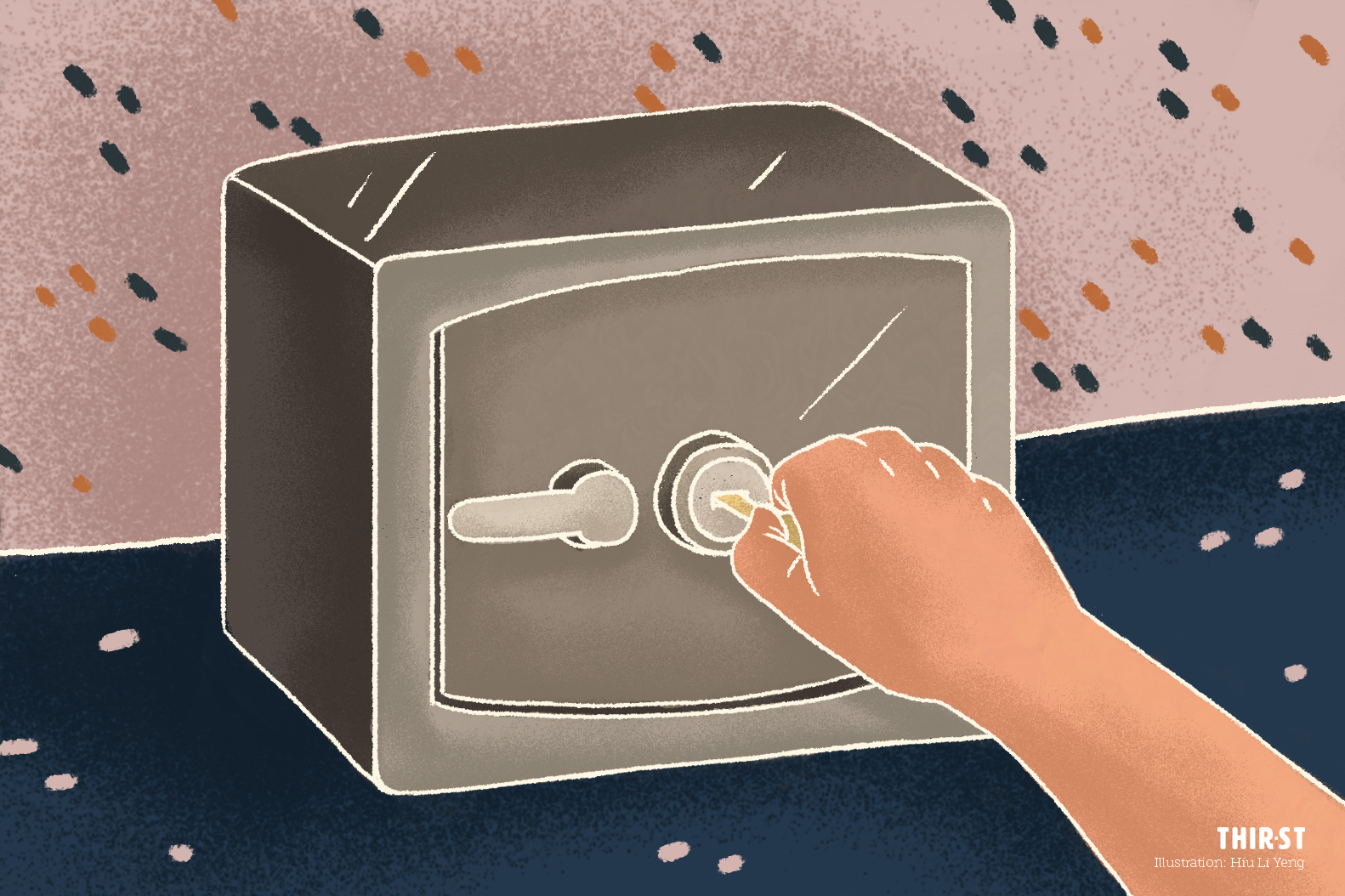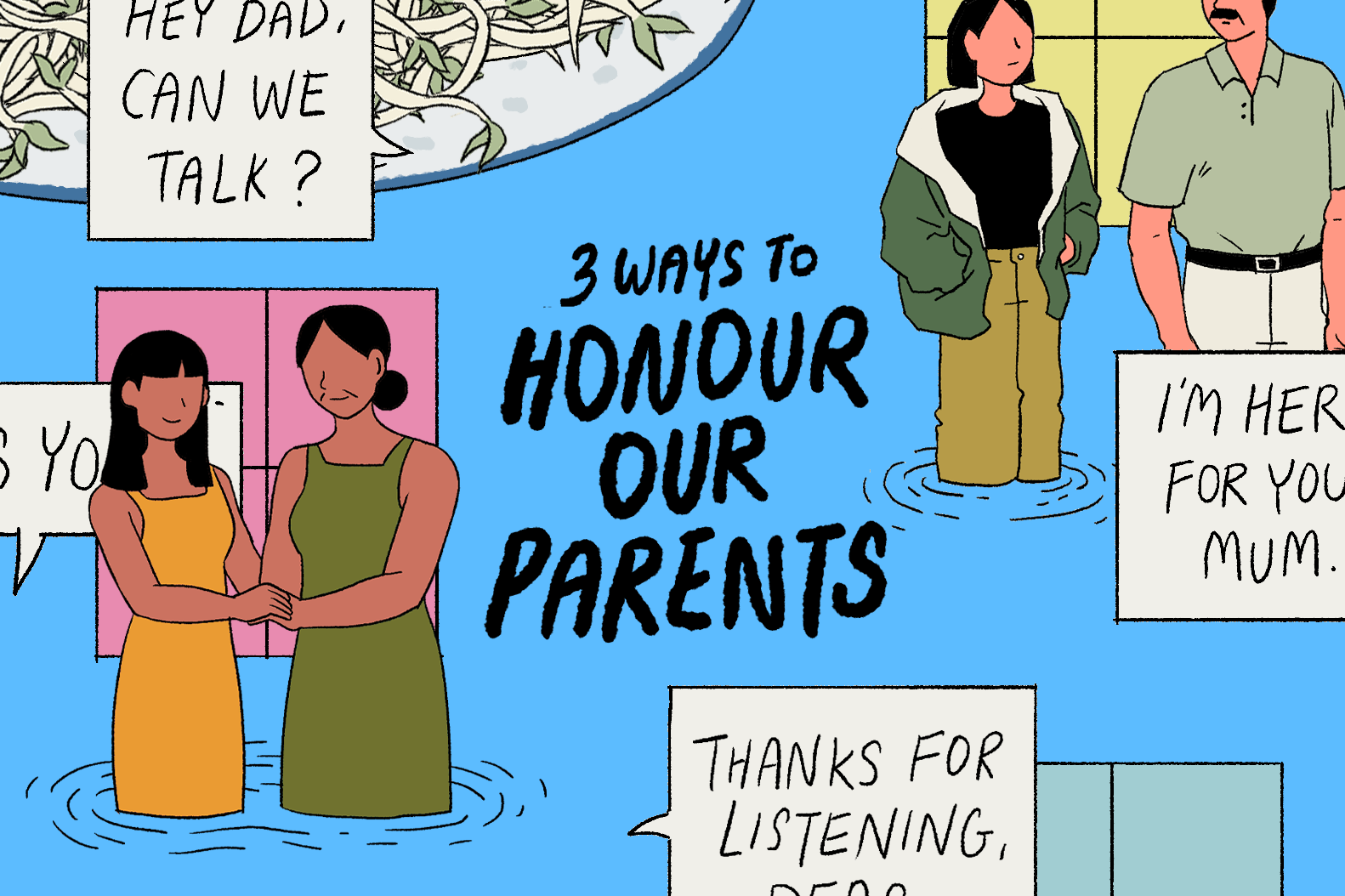“Your mother was highly successful. A scholar. By the time she was your age, she was giving tuition to multiple children, holding a part-time job and supporting her sister’s university education,” my aunty yelled over the phone. “Look at you! Crying your life away when you know nothing about suffering.”
She continued, rage unabated. “You’re just some rich princess – your father was born rich and so were you – you used your family’s money to study law overseas. Stop crying! Lawyers shouldn’t be crying!
“I lost my younger sister too, you brat. Shame on you.”
This was the day after my mother’s funeral. She had died of leiomyosarcoma (LMS), a rare form of cancer. After that fateful and unexpected phone call, my grieving process was handicapped. I berated myself for feeling sad and crying. I decided that it wasn’t safe to show vulnerability.
Looking back, I wish I had a better relationship with God then – I was in such great pain, but I began to insulate others from my internal struggles. Only I knew the truth of the anguish inside. Apart from having legally inherited some of my mother’s assets at just 19 years of age, I was left bereft – a wreck who felt a gamut of emotions that appeared to be insurmountable.
The trauma suffered from my mother’s death was real. I had just finished my first year of reading law, but I took a gap year after. I simply could not leave my then early retiree father behind in Singapore. Like me, he was grieving.
The grieving process is unique for every individual. In the days that followed, I felt all of the five key stages of grief in a non-linear way: Denial, anger, bargaining, depression and acceptance. It is written in the Bible: “Blessed are those who mourn, for they will be comforted.” (Matthew 5:4) But when my mother passed away, this did not resonate with me.
Since young, she had instilled her mantra in me: “Revealing vulnerability leads to condemnation. Everyone will shun you, including those you love and treasure.” My father, on a similar note, was a true introvert, which meant he spoke little and was largely disengaged from his emotions. So throughout my mourning, there was little comfort to be had.
My mother’s death launched me into a major identity crisis. All my life, through my schooling years, she had charted my path, and I had embraced it. In the midst of comments from relatives that I was too little like her and too much like my father in terms of physical appearance, mannerisms, academic achievements and the like, she had been my confidant. At that time, I was lost without her.
The warmth and sincerity of the church touched my heart; I felt a peace and calmness which transcended all human understanding.
Weeks after her passing, our family friend brought us to church, where her husband was serving as a pastor. Initially, I went grudgingly – my family, though Christian, had almost given up on God entirely after seeing my mum suffer through her illness.
But feeling the warmth and sincerity of the church touched my heart. I felt a peace and calmness that transcended all human understanding. And as I continued attending, week after week, that peace became more and more assuring and firm.
For the first time in a long time, I cried out in my heart to God, like the psalmist did in Psalm 22. And He answered. Slowly.
“My God, my God, why have you forsaken me? Why are you so far from saving me, so far from my cries of anguish? My God, I cry out by day, but you do not answer, by night, but I find no rest.” (Psalm 22:1-2)
Through my experience in church, I now firmly believe that God works through His people. Although it was tough attending any church initially because people would ask me where my mother was or even mistake me for my father’s wife, I watched God use my grief to enable others to exemplify a kind of compassion that I never imagined would have been possible.
My current church was where I found good mentors and friends. The spirit of Galatians 6:2 came alive for me: “Carry each other’s burdens, and in this way you will fulfil the law of Christ.” It was evident in my church friends’ random acts of concern and kindness, as well as words of encouragement to grow in the Lord. Their sincerity is something I will treasure for life.
Gradually, I found myself being more willing to process my grief differently. I gave myself space to feel the pain of losing my mother as intently and intensely as possible, in ways I believe God would have brought comfort to His people.
With the gap year from school, I managed to spend time in my church community and experiencing God’s love for me. With these tangible experiences, I gradually learnt to exercise self-care and self-compassion over time. The free time was crucial because it enabled me to process my thoughts, which would not have been possible if I had delved straight back into my second year of law.
I spent a lot of time journaling and writing short testimonies about my life. Even in the wake of great loss, my relationship with God was restored with the help of His people. When I was shrouded with grief, I started being intentional about looking out for signs or acts that revealed His love, His mercy, His grace.
For a while, everything was hopeless to me and I was a wreck. But I was also hungry to rebuild my life and seek closure. Where there seemed to be no clear-cut solution laid out on the table, the only way out for me was to pour my heart out to God, through words alone, in my prayer journal – a safe haven.
Even in the wake of great loss, my relationship with God was restored with the help of His people.
On top of journaling, God miraculously reconnected me to music. I had stopped playing the piano months after my mum died. I just could not do it. The piano reminded me of her. However, when I played the very first note since her passing, He showed me that none of my training had gone to waste.
Writing sentimental music during my healing season became a source of comfort and refuge. My confidence and self-esteem began to improve, until I became the healthiest and most radiant version of myself at that point in time.
In fact, coupled with my time away from school and in the working world doing legal internships and temporary jobs, I discovered qualities in myself that my mother had grown in me.
Like her, I was resilient, responsible, courageous and passionate. This was her legacy. Despite the difficulties faced in the gap year, God gave me many revelations about my character and calling in the legal industry. He enabled me to reach out to individuals in ways only I could do.
My belief is that God has redeemed and will continue to restore everything I have lost (Joel 2:25). When I returned to school the following year, I was appointed as the internal university mooting judge and mentor, which has given me a chance to share my story with my juniors.
If God wants to use my past trauma to inspire and encourage others, why not let Him do it? I speak with no shame – what matters is what God thinks. By His grace, I’ve learnt to forgive my aunty and other relatives for the hurtful things said, and I’ve unlearnt many of the unhealthy notions they taught me about who I was.
To those who are going through the grieving process, I have a heartfelt prayer for you, that you too will be touched by the awakening, restoration and transformation that I experienced and continue to encounter.
Our faith is a highly personal walk with a God who made us for relationship. I know that it’s not easy to surrender our emotional burdens to God, especially with the sheer depth of past trauma some of us have faced. None of our struggles with grief are insignificant.
May you have the strength to believe that God works His purposes through you, even though you may not see it now. Take heart and have hope! Do not give up on the Lord – He loves you!
The author’s name has been changed for confidentiality.
- Do you struggle with sharing your pain?
- How can community help you through difficult seasons?
- Why is it important to process one’s grief with God?
- How has God shown you comfort in your pain?









